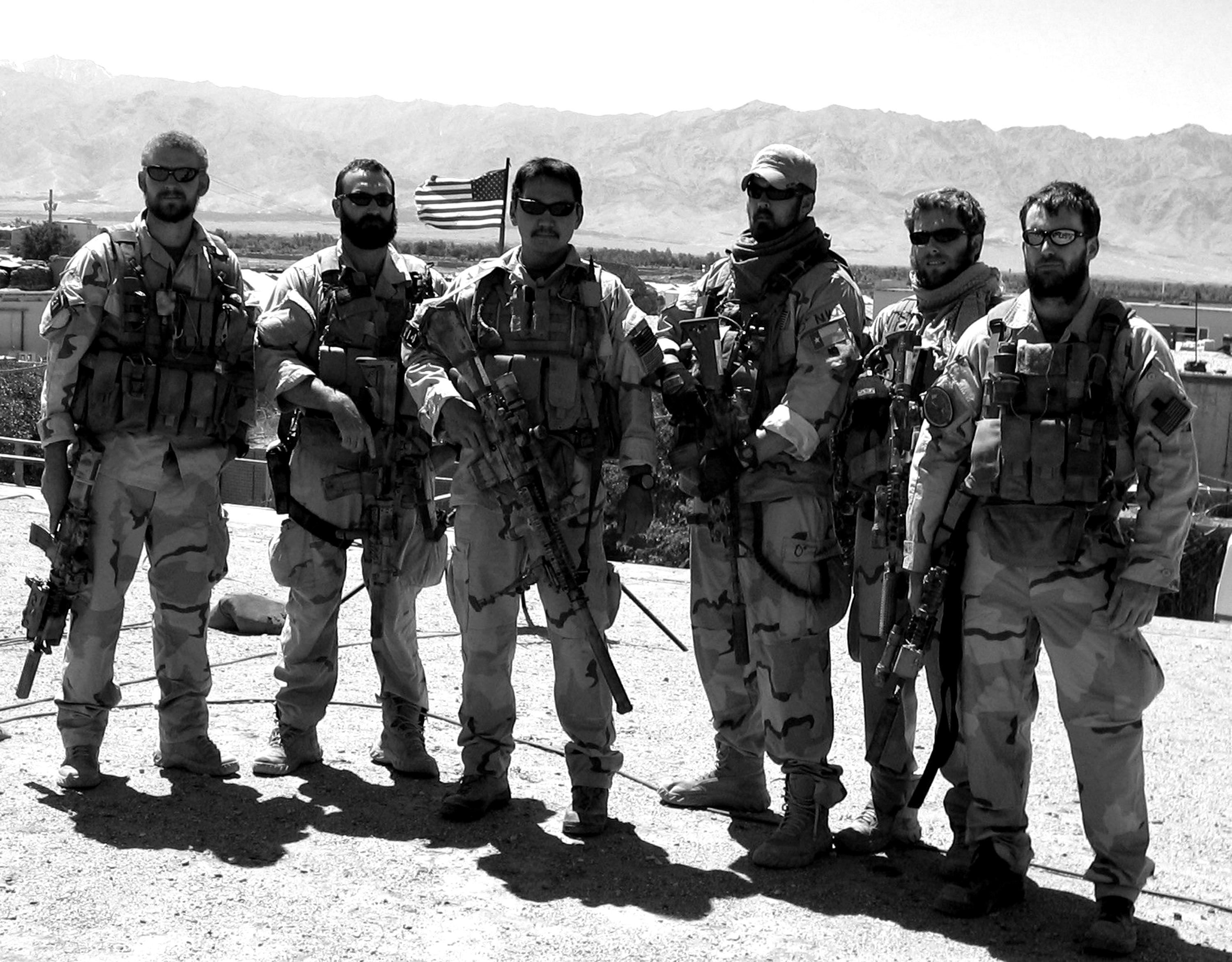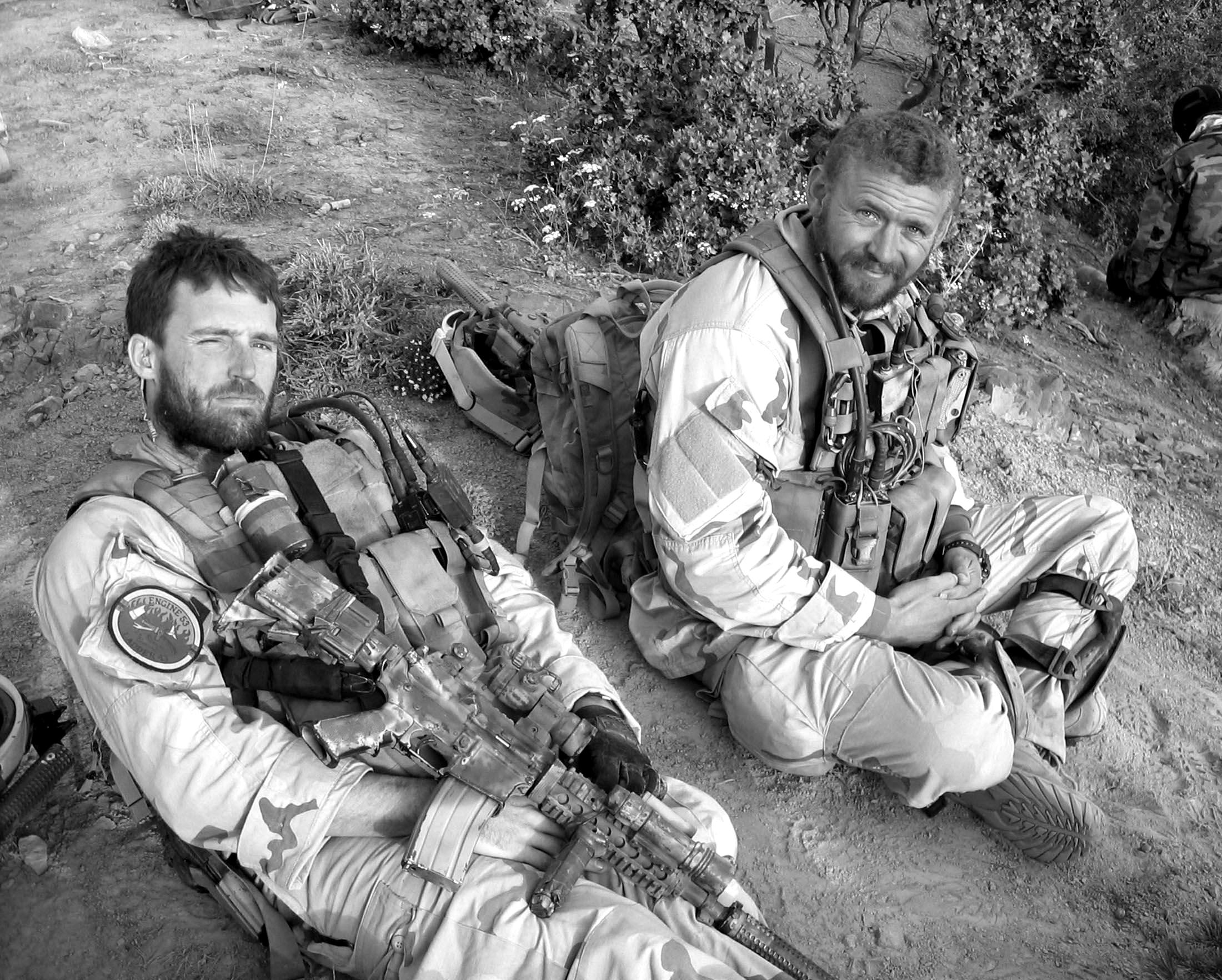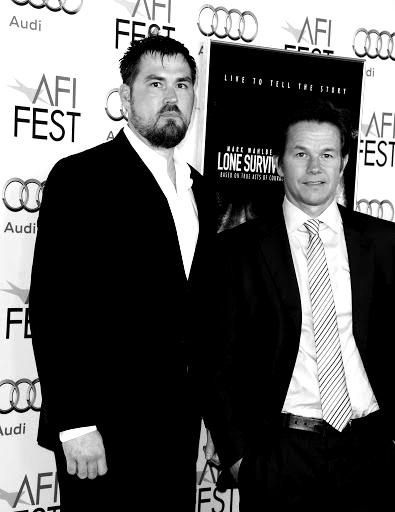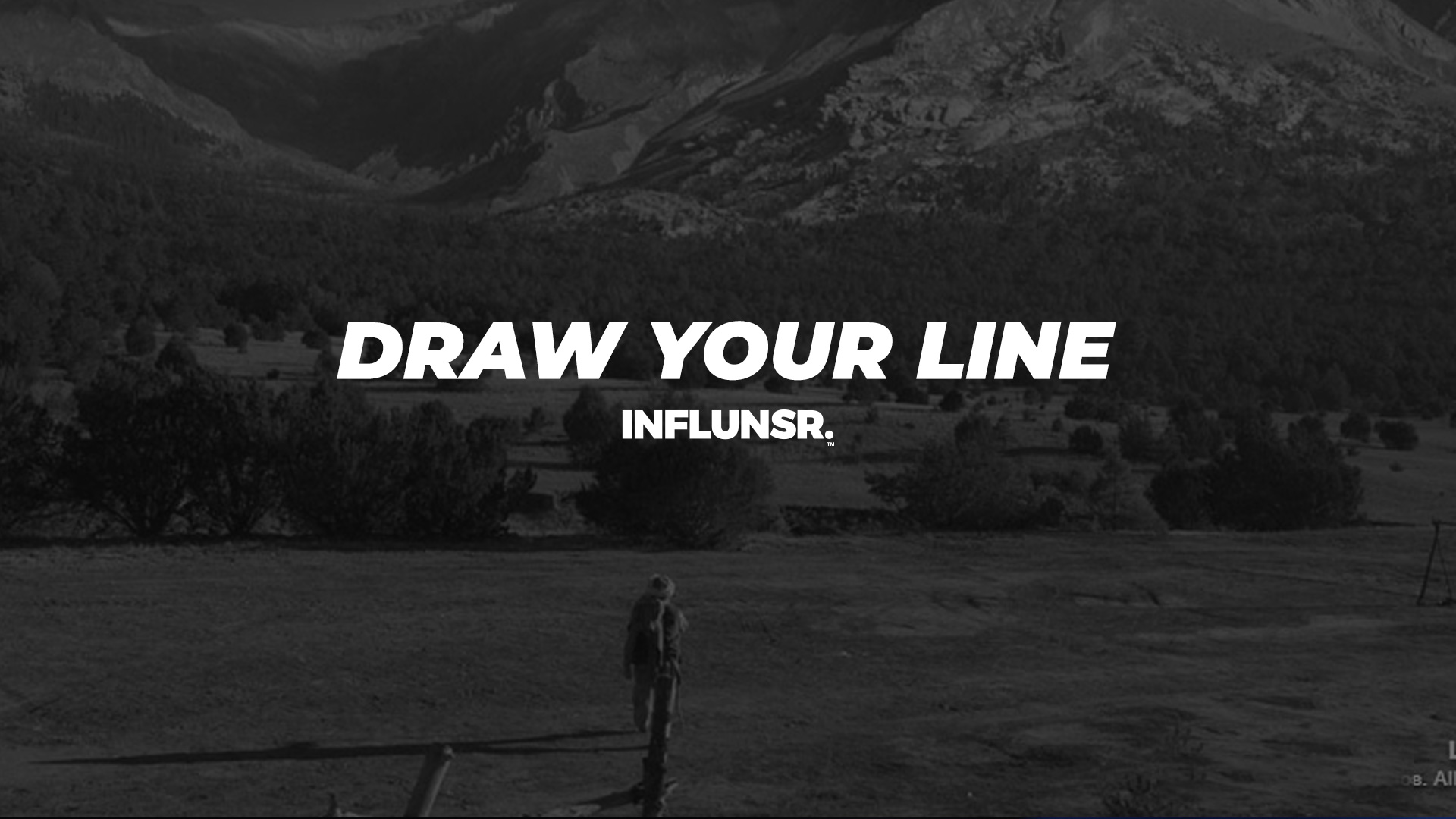In honor of Memorial Day 2020, and in light of the anxiety, adversity, and chaos that surrounds our world today and impacts you — the next generation of leaders worth following — consider this real-life story of courage, integrity and grit. And draw your line. Because that is what leaders do.

Laden with weapons and gear, Petty Officer Marcus Luttrell grasped the rope dangling from the rear of the Chinook transport helicopter and descended into the moonless night. Twenty feet down, his boots touched ground in the remote mountains of northeastern Afghanistan near the Pakistani border. As the roar of the helicopter faded to silence, Luttrell and three other Navy SEALs—Lieutenant Michael Murphy and Petty Officers Danny Dietz and Matt Axelson—found themselves alone in the pitch darkness of a desolate war zone.

The elite four-man team was searching for Ahmad Shah, a militia leader aligned with the Taliban, as part of a mission dubbed Operation Red Wings. Soaked by a cold rain, the quartet hiked for hours through the darkness as they struggled to keep their footings on the steep mountain ridges. After the sun dawned on June 28, 2005, nearly four years into the war in Afghanistan, the mud-caked SEALs burrowed themselves behind rocks, logs and tree stumps on an outcrop overlooking Shah’s suspected location. The 29-year-old Luttrell, a sniper and team medic, concealed himself under a felled tree when he suddenly heard soft footsteps. Looking up, he saw a turbaned man carrying an axe.
The SEALs had been discovered. Not by enemy forces, however, but a local goat herder. Within moments, nearly 100 goats with bells around their necks came jingling over the mountainside with another herder and a teenage boy.
The surprise presented the SEALs with several options—none of them good. Killing unarmed noncombatants would violate acceptable rules of engagement and also likely result in a court-martial. If the SEALs tied up the three and left them behind, they still faced the problem of what to do with the bleating herd without raising suspicions. Dietz, who was in charge of communications, tried to radio headquarters for instructions but could not connect.
Left to make their own decision, the unit released the unarmed men, knowing it was very possible that the herders would inform the Taliban forces. It was a decision Luttrell “knew could sign our death warrant.”

With their mission compromised, the SEALs tried to move to a defensive position, but barely an hour later, dozens of Shah’s forces emerged over a ridge line. An avalanche of AK-47 fire, rocket-propelled grenades and mortars cascaded down the mountain. The terrain proved just as vicious as the enemy. As the Taliban fighters advanced, the SEALs scrambled, fell and jumped hundreds of feet down the mountain. One fall shattered three of Luttrell’s vertebrae.
Dietz was shot multiple times during the firefight, and although his right thumb had been blown off in the battle, he continued to shoot at the enemy to protect his unit. As Luttrell hooked his arms underneath the shoulders of his badly wounded comrade to drag him down the slope, a bullet hit Dietz in the back of his head. He died in Luttrell’s arms.
The badly wounded Murphy knew their best chance at survival was to call in reinforcements. Without a workable radio connection, the team leader cast his personal safety aside and moved to a completely exposed position, the only location where he could get a signal on his satellite phone. As Murphy phoned for backup, a bullet ripped through his back. The lieutenant managed to complete his call and even keep up the fight, but he could not survive. Luttrell holed up with Axelson, who had sustained a terrible head wound, when a rocket-propelled grenade blasted the two apart. Luttrell never saw Axelson again.

Luttrell miraculously survived the blast and managed to elude capture by the time reinforcements arrived. Alerted by Murphy’s call, two Chinook helicopters carrying Special Operations Forces rushed to the area of the firefight, but as one of the aircraft hovered to discharge its troops, a rocket-propelled grenade shot it out of the sky. The eight SEALs and eight Army Night Stalkers aboard all died.
By the time the sun set on the disastrous day, 19 Americans were dead, and Luttrell was presumed to have been a 20th victim.
Luttrell was shot eleven times. He broke his back and his pelvis and he blew out his knee. He broke his nose and bit off a piece of his tongue.
Marcus needed to travel seven miles to reach the nearest village to have any chance of survival. Even though he couldn’t stand, walk or run, he didn’t think about the distance he had to cover. That would have overwhelmed him and made him quit. As he lay on the ground looking at the moon, he decided to crawl.
Luttrell grabbed a rock, reached out as far as he could, and drew a line in the dirt with the rock. Then he crawled forward. When his feet passed the line, he drew another line.
He did that for seven miles.
Marcus didn’t think positively. He didn’t think negatively. He thought, “I am capable of crawling to this line.”

Consider it pure joy, my brothers and sisters, whenever you face trials of many kinds, because you know that the testing of your faith produces perseverance. Let perseverance finish its work so that you may be mature and complete, not lacking anything. [James 1:2-4 NIV]
James seems to have lost his mind in these verses. How in the world is there anything joyful about facing trials? Not only trials, but James throws a blanket over the kind of trials: he says many kinds. It’s almost as if he knew that you and I would immediately justify why the difficulty, the adversity, the anxiety we feel is different than anyone else.
Don’t you do that? Haven’t you found yourself shrugging off someone else’s hardship and amplifying whatever difficult plight you find yourself in? It doesn’t take a deep dive today to see that you — the next generation — are facing difficulty after difficulty. COVID-19. Pandemic. Canceled school. Canceled theatre plays. Canceled sports seasons. No prom. No graduation. Can’t leave your home. Can’t see your friends. Have to wear a mask. The mall is closed. Restaurants are closed. The list goes on and on…
Life is going to present you with more adversity than you can imagine. You know that. The COVID-19 pandemic and subsequent fallout is proof that difficulty is real. INFLUNSR wants to challenge you with this: the next time life presents a challenge to you that seems insurmountable, don’t simply assume that everything will work out. Don’t tell yourself you can’t do it. Simply evaluate the situation. Determine what you can accomplish right now.
Then draw your line.
When you cross that line, draw another line and get moving. Then draw another. And keep going.
And what you’ll realize is that someone will begin to follow your example.
That’s influence. That’s what leaders do.
And that’s you.


